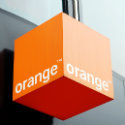
Orange, like a growing number of other telco incumbents, is testing open RAN waters in what might be described as "less demanding" markets.
As part of a broader program dubbed IDEAL (Include Digital in Every African Life), Orange intends to start rollout of OpenRAN – which adheres to specifications developed by the Facebook-led Telecom Infra Project (TIP) – in rural areas of Central African Republic.
Orange is looking to expand its current 700,000 subscriber base there through OpenRAN tech.
US-based software company Parallel Wireless, which is picking up a fair amount of OpenRAN business – with Vodafone and Telefónica among its growing clientele list – is part of the supplier mix. So too is i engineering, a managed services provider.
Hervé Suquet, CTIO at Orange's operations in the Middle East and Africa, spoke enthusiastically about combining "RAN openness and virtualization, automation and new revenue-generating opportunities" to drive growth in Central African Republic.
Heavyweight operators putting OpenRAN through its paces in the more far-flung (and rural) parts of their footprints is nothing new.
Vodafone has OpenRAN trials on the go in Democratic Republic of Congo, Mozambique and Turkey. Telefónica's "Internet para Todos" initiative in Peru essentially functions as an OpenRAN testbed for the Spanish giant.
Yago Tenorio, Vodafone Group's Head of Network Strategy & Architecture – and Chairman of Telecom Infra Project (TIP), a Facebook-led initiative that seeks to upend traditional supply chains – concedes that OpenRAN is not yet ready for prime time in urban areas.
In a recent webinar hosted by Light Reading, Tenorio indicated that current commercial OpenRAN deployments tend to need software fixes on the fly, which chews up capacity and compromises performance.
Strains of this sort are much more easily accommodated in rural and suburban locations than more densely populated urban areas.
— Ken Wieland, contributing editor, special to Light Reading
About the Author(s)
You May Also Like










